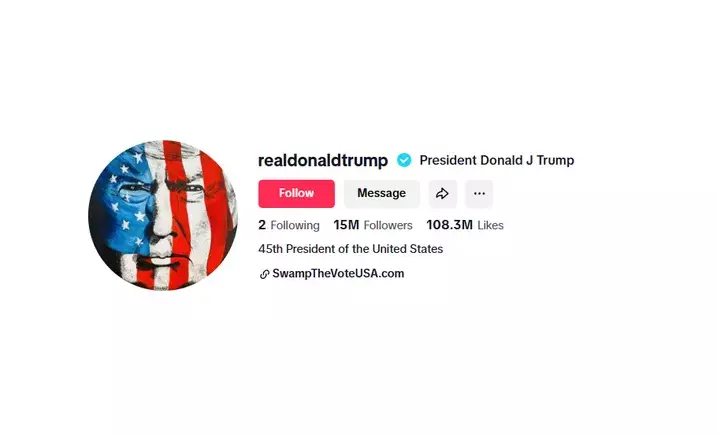The landscape surrounding the TikTok ban in the United States presents a complex interplay of legal issues, political decisions, and public sentiment. As of now, TikTok is technically banned under a recently upheld legislation aiming to restrict platforms controlled by foreign entities. Still, in a puzzling twist, the app remains operational for American users, raising questions about legality and the future of the platform in the U.S.
The “Protecting Americans from Foreign Adversary Controlled Applications Act” serves as the backbone of the recent attempts to ban TikTok. The overwhelming bipartisan support in Congress, with a vote of 431 to 83, reveals a significant concern regarding TikTok’s ties to the Chinese government and its implications for national security. The act’s intent is rooted in fears that the app could potentially exploit user data or push propaganda, thus endangering American citizens.
This legislative pressure culminated in a looming deadline, with enforcement expected under the outgoing Biden administration. However, the newly inaugurated President Trump expressed intent to delay the ban’s implementation, granting TikTok a 75-day extension. This decision, while appearing to provide a lifeline to the app, raises legal debates about its enforceability given that the law is already in effect. Essentially, Trump’s pause appears more symbolic than substantive, leaving many in the tech industry perplexed and cautious.
The reaction from tech giants—particularly Apple and Google—has been telling. Despite Trump’s assurance that they would face no penalties if they violated the ban, both companies have refrained from re-listing TikTok in their app stores. This hesitance can be attributed to fears surrounding liability and the intricate web of regulations that govern technological operations in the U.S. The prospect of incurring a $5,000 fine per user is a clear disincentive for these companies to support TikTok actively.
Oracle, on the other hand, has aligned itself with the Trump administration’s pledges, allowing it to maintain its backend services for TikTok. This divergence in action among tech firms highlights varying levels of risk tolerance and indicates how the political climate can impact corporate strategies. For Apple and Google, maintaining a stance of compliance and caution seems paramount, while Oracle’s approach reflects a gamble on current political assurances.
The legal ambiguity surrounding TikTok’s status creates a precarious situation for all involved. While it is currently operational, the ongoing legal framework suggests that this may not continue indefinitely. Legal experts suggest that Trump’s extension might not hold in a court of law due to its retrospective application. Should the TikTok ban be enforced, the ramifications would extend beyond the app itself, affecting user access and digital engagement on a massive scale.
As the potential of punitive measures looms, questions arise about how various stakeholders will respond. If TikTok were officially banned, could users still access it through alternative means? And how would tech companies like Oracle navigate this evolving landscape? Each of these entities must weigh their options, considering both the political climate and the possible repercussions of their actions.
In a politically charged environment, public perception and political maneuvers heavily influence the fate of TikTok in the U.S. While President Trump seems to view TikTok as a lucrative bargaining chip, aiming for a substantial stake in the company, there’s a real possibility that his approach could shift once briefed on national security concerns. Lawmakers have stressed the importance of protecting American interests, and the nature of TikTok’s operations could lead to a reassessment of its value.
Ultimately, the path forward for TikTok will depend on various intertwined factors, including political will, public opinion, and the legal landscape. For users and stakeholders alike, the ongoing developments remain uncertain. The app may currently be functional, but its existential threat highlighted by recent legislation emphasizes a broader theme of regulatory scrutiny facing foreign-controlled platforms.
While TikTok continues to serve its user base in the U.S. for now, the convergence of legal, political, and social pressures suggests an uncertain future. Stakeholders must navigate this tumultuous terrain thoughtfully, keeping an eye on evolving circumstances that could dramatically alter the digital ecosystem.


Leave a Reply